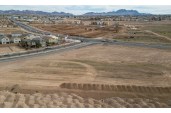In the Mile High City, residential construction continues to hit new peaks, with high annual job growth, a low unemployment rate, and several builders shifting their product to meet the influx of buyers looking for homes at attainable prices.
Denver-based employers have added an estimated 29,200 jobs over the past year ending in September—down from 36,600 the previous year—for a 1.7% annual growth rate, according to Metrostudy. But although the job growth has slowed compared with a few years ago, announcements for business relocations and expansions—including retail giant Amazon’s decision to grow its Denver Tech Hub with a new office downtown—continue at a steady pace. As a result, the city’s job base remains strong across sectors, especially in technology, finance, manufacturing, and energy, and the unemployment rate remains low at 2.6%, down from 3.3% in August 2018.
By the Numbers
Population: 2.9 million
2019 Local Leaders Rank: No. 10
Annual Job Growth: 1.7%
Q3 19 Annual Starts: 11,538
Q3 19 Annual Closings: 12,357
Median Sales Price: $450,000
Average Rental Rate: $1,542
“With a steady, healthy local economy, low interest rates, tight resale inventory, and new communities opening up, new-home sales contracts are starting to pick up again after last year’s slowdown,” says John Covert, Metrostudy senior regional director, in Denver’s Q3 2019 executive summary. “Sales contracts for the last five months, May through September, are up following sharp declines in nine of the previous 11 months.”
Builders started 3,437 homes in Q3 19, up 4% from 3,314 in Q3 18. Annual starts, on the other hand, will continue to show declines due to the slowdown that started last summer and carried into the first quarter of 2019. As of Q3 19, there were 11,538 annual home starts in Denver, an 11% decline from 12,966 in Q3 18.
With high home prices and tight lot supply, Denver builders are shifting to smaller, more affordable product as new communities—such as Sky Ranch, Harmony, Aurora Highlands, Green Valley Ranch East, Painted Prairie, Reunion, and others along the E-470 corridor and surrounding the Denver International Airport—come online and accelerate detached home starts in 2020. Covert also mentions it’s worth noting that some of the demand for housing has been pushing north into the southwest Weld County submarket. Although the county isn’t technically considered part of the Denver metro area, the tri-town area of Frederick/Firestone/Dacono is being strongly influenced by nearby Boulder and Denver.
As for closings, builders secured 3,118 homes in Q3 19, a number that remains basically unchanged from the 3,115 homes closed in Q3 18. Current data also shows 12,357 annual closings in Q3 19, a 6% year-over-year increase and the 30th consecutive quarter for annual percentage increases. But moving forward, housing analysts expect closings may decline in the coming months due to recent declines in starts.
Of the Q3 19 starts and closings, only one product type experienced gains over the year—condominiums. Condo starts for the quarter, and annually, are at their highest levels since 2007. According to Metrostudy Q3 19 data, quarter starts were 517, a 324% change from 122 in Q3 18, and annual starts were 1,337, a 35% change from Q3 18’s 993.
“Looking forward, we think 2020 is going to be a strong year because of the shift the builders and developers have made to smaller product,” says Joe Hemmelgarn, senior consultant at Metrostudy. “Now, our caveat is the elections. We just don’t know what effect the political environment will have, but I think if we weather that, it will be a good year for building.”



